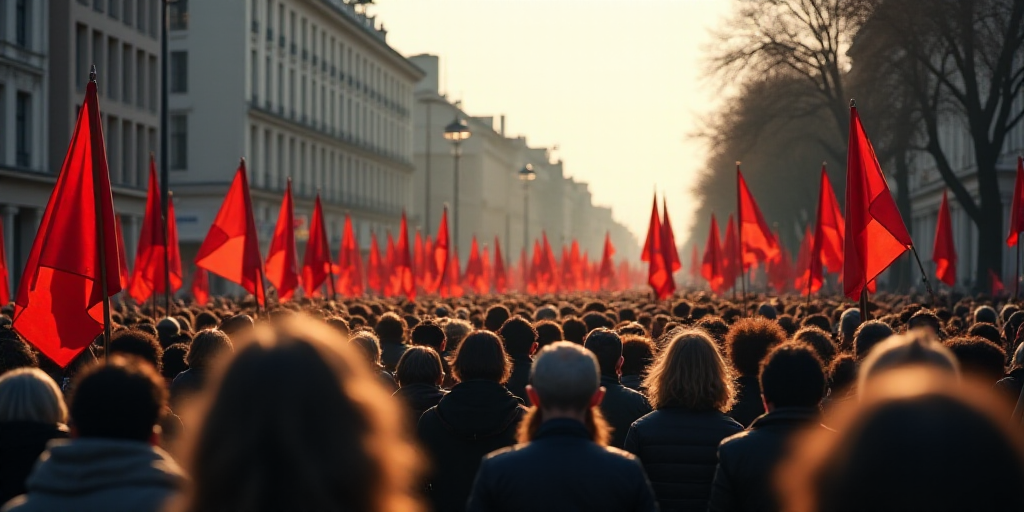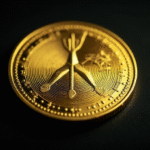Background on Key Figures and Context
The recent Spanish cycling race, known as the Vuelta ciclista a España, has transformed into a political battleground following protests by pro-Palestinian activists. The situation has drawn reactions from Spanish President Pedro Sánchez and other government officials, highlighting the complex relationship between Spain and Israel.
Pedro Sánchez, the President of Spain, leads a left-wing coalition government that has been critical of the Israeli administration under Benjamin Netanyahu. His stance on the pro-Palestinian protests has sparked controversy and criticism from various parties.
Yolanda Díaz, the third-ranking member of Sánchez’s cabinet, previously expressed her support for the protesters and suggested that countries like Russia and Israel should not participate in international competitions until they cease what she called “barbarity.”
Ernest Urtasun, Spain’s Minister of Culture, proposed that Spain should boycott the upcoming Eurovision Song Contest if Israel participates.
Government Support for Protesters and International Reactions
President Sánchez reiterated his support for the protesters, stating that their peaceful demonstration against injustice deserves respect. He emphasized that his government stands by its athletes and cyclists in the Vuelta ciclista a España. However, this stance has drawn criticism from Israeli officials and international sports organizations.
Israel’s Minister of Foreign Affairs, Gideon Saar, accused Sánchez of encouraging protesters and called his government a “disgrace” for Spain. The International Cycling Union (UCI) expressed its disappointment with the Spanish government’s support for protesters, questioning Spain’s ability to host major international sporting events.
“Intolerable” Tensions Between Spain and Israel
The relationship between Spain and Israel has been strained for months, particularly since Spain recognized Palestine as a state in 2018. Tensions escalated last week when Sánchez announced new measures to “end the genocide in Gaza,” including a decision to not sell or buy weapons from Israel.
As a result, Spain canceled a nearly 700 million euro contract for Israeli-designed launchers, according to official documents. This move further exacerbated tensions between the two countries.
Domestically, Spain’s right-wing opposition has criticized Sánchez and his government for failing to manage the protests or, according to them, inciting them. Alberto Núñez Feijóo, leader of the Partido Popular (PP), accused the government of allowing and encouraging the disruption of the Vuelta ciclista a España, resulting in international ridicule.
Reactions from Jewish Communities and Cycling Organizers
The Federación de Comunidades Judías de España (FCJE), representing 45,000 Jewish individuals in Spain, condemned the events and criticized any permissiveness towards violence as a democratic setback and a threat to social cohesion.
Throughout the Vuelta ciclista a España, activists supporting the Palestinian cause disrupted several stages, causing falls among cyclists and forcing race organizers to shorten certain routes due to the popularity of the Palestinian cause in Spain.
Javier Guillén, the race director, expressed his disappointment with the events and cautioned about the upcoming Tour de France in Barcelona in 2026, acknowledging that international organizations will need to consider solutions for such situations.
Key Questions and Answers
- Who is Pedro Sánchez? President of Spain and leader of a left-wing coalition government.
- What is the controversy surrounding the Vuelta ciclista a España? Pro-Palestinian activists disrupted the race, leading to criticism of President Sánchez for supporting their cause.
- What measures has Spain taken against Israel? Spain canceled a weapons contract with Israel and has suggested boycotting international events involving the country.
- How have Jewish communities in Spain responded? The Federación de Comunidades Judías de España condemned the violence and criticized permissiveness towards it.
- What challenges does the future of international sporting events in Spain face? Race organizers and international bodies must address how to handle disruptions caused by political protests.






